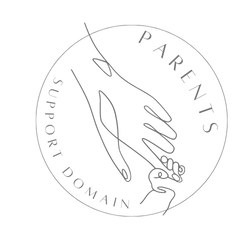Methamphetamine During Pregnancy
Meth use during pregnancy carries increased health risks, making it a leading cause of drug counseling for expectant mothers. Up to 4.8% of expecting mothers experience meth usage or addiction in places where it is prevalent.
Methamphetamine enhances sex urges and decreases impulse control, both of which can raise a woman’s likelihood of becoming pregnant. As a result of their drug use, addicted women may engage in risky sexual behavior that might result in pregnancy and raise their risk of STDs.
Meth and Its Effects on Mothers
Ladies who regularly use meth have an alarmingly low body mass index. This can increase the likelihood of problems during pregnancy, as well as the length and frequency of hospital visits. Meth usage during pregnancy has also been linked to decreased blood supply to the placenta.
Meth use during pregnancy can impair a woman’s ability to make sound decisions, so she may be reluctant to seek medical care if she needs it. But, pregnant women who use meth have an increased risk for serious or even fatal problems. Here are a few examples:
- High blood pressure: Uncontrolled high blood pressure can lead to a variety of health issues, including damage to the kidneys, a stroke, and difficulties with the heart.
- Eclampsia: This disorder is linked to maternal mortality. Meth use during pregnancy is associated with dangerously high blood pressure and can lead to eclampsia. The mother’s liver, brain, and kidneys may all suffer damage from this illness.
- Placental detachment: This happens in certain meth-using women. It has the potential to induce fatal bleeding.

Preterm labor and delivery are an additional concern for pregnant women who use meth. Even more so, a study from Cedars-Sinai found that 50% of methamphetamine-using pregnant women had premature newborns. Further difficulties can arise from C-section deliveries (29% of women in the study had one).
Meth Babies
Due to the high number of drug-addicted newborns, the phrase “meth babies” has gained popular parlance. While the current opioid crisis in the United States is a contributing factor, it is not the primary one.
Around 20,000 newborns are born addicted to drugs like meth each year in the United States, according to the National Institute on Child Health and Human Development.
One infant experiencing severe withdrawal is born every 25 minutes, according to a study published in the New England Journal of Medicine.
It takes longer to wean infants off the medications they are born hooked to, according to the same survey, which found that 27 out of every 1,000 babies in 2013 were born addicted to opiates.
Born with a Meth Addiction
Meth can have devastating consequences on the health and well-being of the fetus in addition to those on the mother during pregnancy.
Causes of Meth-Related Birth Deformities
Many studies have shown that prenatal exposure to meth can lead to chromosomal damage, behavioral and developmental problems, and even congenital heart issues.
Premature delivery occurs in almost half of the infants born to meth-using mothers. They may experience delayed maturation of vital organs, including the brain, heart, and kidneys, as a result of this.
Babies of meth-using mothers are at increased risk of death from complications such as miscarriage, early delivery, fetal stroke, and others.
Infant Meth Withdrawal Symptoms
When taken during pregnancy, meth can potentially cause addiction in the unborn child. In other words, the newborn will experience withdrawal symptoms once the meth supply in the mother’s veins is cut off.
Although meth withdrawal is usually safe, it can make the newborn’s first few days difficult and stressful. This may have an effect on the baby’s ability to reach early developmental goals, such as learning to breastfeed.

Meth’s Long-Term Impact on Infants
Long-term mental, emotional, and behavioral issues are thought to be common in children of meth addicts. For instance, methamphetamine (meth) affects the brain’s neurotransmitters in a way that might create behavioral problems in newborns.
Fine motor abilities in meth-exposed children may be impaired, which might exacerbate their coordination issues. School-aged versions of these kids may have a higher propensity for hyperactivity, learning problems, and explosive anger.
Use of Opioids During Pregnancy
Opioid usage during pregnancy can be related to alleviating pain, addressing opioid use disorder (OUD), or both. There is limited evidence that opioids when used as prescribed, cause birth abnormalities.
In fact, treating opioid use disorder with drugs like buprenorphine and methadone can save the lives of both the mother and the child.
Untreated OUD, especially when narcotics like heroin, fentanyl, or prescription opioids are being abused, poses the greatest risk to both the mother and the growing child.
Untreated opiate use disorder during pregnancy can result in a fatal overdose. Stillbirth, low birth weight, and premature delivery have all been related to fetal exposure to opioid withdrawal, which can occur during untreated addiction.
Medication treatment for OUD has been proven time and time again to enhance results for both the mother and the newborn.

Neonate abstinence syndrome, also called neonatal opioid withdrawal syndrome, is a collection of withdrawal symptoms that can afflict infants in the days following delivery if they are exposed to opioids during pregnancy.
Staying on your prescription OUD medication, breastfeeding or chestfeeding, rooming in (having the baby sleep in your room instead of a nursery), and not smoking tobacco can all help alleviate the symptoms of this syndrome, which is both transitory and manageable.
Use of Amphetamines During Pregnancy
As stimulants, amphetamines can increase mental and physical performance. Amphetamines come in two main forms: legal prescription medicines like Adderall that are used to treat attention-deficit/hyperactivity disorder (ADHD), and unlawful “street” drugs like methamphetamine.
There are dangers associated with using amphetamines of any sort when pregnant.
Pregnant women with methamphetamine use disorder are at increased risk for a wide range of problems. As the medication suppresses appetite, the expecting mother may not consume enough calories to prevent a low birth weight baby.
Therefore, the danger of having a baby early is raised. Birthing parents who use methamphetamine are at increased risk for cardiovascular problems such as high blood pressure and stroke.
Conclusion
Methamphetamine is harmful to the body and can increase the chance of difficulties during pregnancy in females. Women who regularly use meth have been shown to have considerably lower body mass indices than non-users (BMI). This may increase the danger to the pregnancy of a woman.
Pregnancy problems, such as greater hospitalizations and longer stays, were shown to be more likely in women with a lower body mass index. Loss of appetite is one of the side effects of meth use, and it may affect the fetus’s development in the womb.
A woman’s placental blood flow might be negatively affected by her meth use during pregnancy. This may lead to fetal hypoxia or an oxygen deficiency.
Since 2003, meth addiction has been the leading cause of admission to treatment in U.S. government-sponsored health centers for women. It gets more complicated since people frequently mix meth with other narcotics, including prescription medicines, marijuana, cigarettes, and alcohol.
It is important to stay away from any type of substance during pregnancy. There are a lot of studies with enough data suggesting that meth is dangerous for fetal health.




